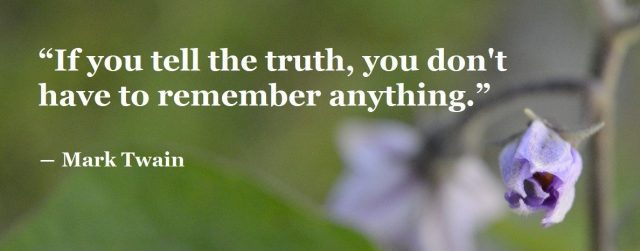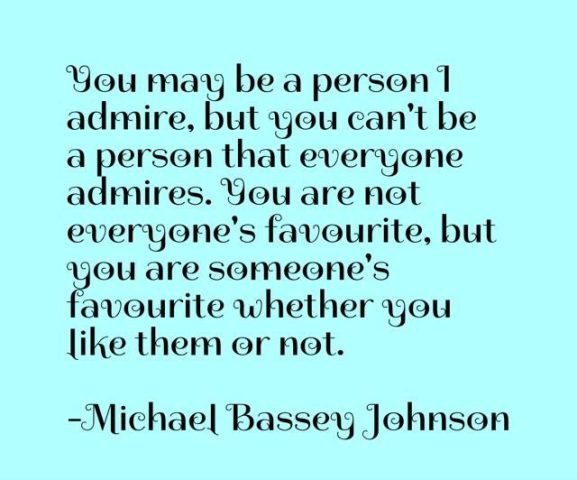17 Must-Know List of Good qualities In A Person
By Ruth Jesse
January 10, 2024 • Fact checked by Dumb Little Man

Wondering what makes a person good? Well, you are in luck then. We have all the good information you will need to find a good person in your circle.
So, without any delay, let's jump right to it and view all the personality traits that make a person good.
Get some ideas of what are the 17 Must-Know List of Good qualities In A Person

1. Honesty in relationships
Relationships are the most crucial aspect of anyone's life. We're all social creatures with different personality traits. We all have different personality traits.
A truly good person has good ties with their friends because they appreciate them and invest time in them. They're ready to assist when crap hits the fan. A truly good person is there to listen when their friend wants to vent about the negative things going on in their lives. A truly good person does not have to like everyone, but they must be kind to everyone. They view individuals for the person they can be and can see beyond the present to recognize the person's positives.
After all, a truly good person understands that the world does not revolve around them and that in order to live a flourishing life, you must have others by your side. It's easy to get too busy and let life get in the way, but truly decent people make time to check in with their parents on a regular basis. They have an open relationship.
2. Thinking of others
It's simple to live a life focused solely on yourself. However, a good attribute in someone is caring for others and considering others before making a decision.
because a truly good person understands that what is good for them is not always beneficial for others
Don't get me wrong. They don't bend over backward to allow individuals to take advantage of them properly. They simply do not make decisions or perform actions if they know it would have a detrimental impact on someone else. Good people recognize the importance of praising others. Complimenting is not only a kind thing to do, but it also shows that you are interested in other people's successes. A truly decent individual will provide compliments when they are due and constructive criticism when it is appropriate.
A truly good person does not take their worries out on their loved ones and is just as charming at home as they are in public.
3. Low impulsivity (being able to control cravings and urges)
The good news is that scientists have discovered that the brain can be trained to be less impulsive.
Determining how you want to prioritize your time is a good approach to start. Then, before behaving rashly, double-check that your actions are consistent approach with the ideas you've laid down.
4. Low vulnerability to stress
Exercise is important because it ensures negative things that don't come to mind when you're stressed. Exercise is, after all, a sort of physical stress. Physical stress, on the other hand, appears to reduce mental stress, according to a study. According to Harvard Health, aerobic activity is equally as important for your brain as it is for your heart:
“Regular aerobic exercise will make a significant difference in your physique, metabolism, heart, and spirits. It has a one-of-a-kind ability to exhilarate and relax, to stimulate and soothe, to combat depression, and to relieve stress. It's a regular occurrence among endurance athletes, and clinical research that effectively employed exercise to treat anxiety disorders and clinical depression has confirmed it. You, too, can benefit psychologically from exercise if athletes and patients can.”
Exercise works because it lowers levels of the only way of stress hormones like adrenaline and cortisol in the body, according to Harvard Health. It also boosts the production of endorphins, which are natural pain relievers and mood boosters.
5. Low depression
Mentally and physiologically, depression drains you. It isn't easy or quick to get out of despair, but it is doable.
Here's a nice list of things to do to improve your mood from Help Guide:
✦ Make an effort to connect with respectful individuals and stay in touch.
✦ Engage in activities that make you happy.
✦ Get up and move around.
✦ Eat a balanced perspective diet
✦ Get your daily dosage of vitamin D.
✦ Examine your negative thoughts.
RECOMMENDED DATING SITE | REVIEW | VISIT |
|---|---|---|
 | Top dating site with over 16 million active members. Free to Try! |  |
6. Low levels of angry hostility
We're all irritable at times. And it can frequently feel like an uncontrollable force is taking hold of us. Holding on to anger, on the other hand, can have negative physical and emotional consequences.
So, how can you learn to control your anger when it arises? Learning breathing methods were beneficial to me. Simple breathing exercises can also help you relax and relieve stress.
Stress is known to cause rapid, irregular breathing. Slow, deep, and regular breathing, on the other hand, is an indication of relaxation.
The result will be relaxing if you learn to modulate your breathing to resemble relaxation.
How to do deep breathing is as follows:
➤ Inhale gently and deeply while concentrating on your stomach rising and falling.
➤ Take a deep breath and hold it for 4 seconds.
➤ Exhale for 6 seconds while thinking about how soothing it is.
➤ Repeat this cycle 5–10 times more, focusing on slow, deep breathing.
7. Low anxiety (not being “shy, fearful, nervous, tensed, and restless”)
Anxiety is a battle that many individuals have to fight. Everyone experiences anxiety from time to time. However, “concern is a way of life” for others to treat people.
Learning the 5 step paradigm of acceptance and commitment therapy was one thing that helped me.
∎ Make a list of your worries.
∎ Let go of the reins of power.
∎ Recognize and accept your thoughts and feelings.
∎ Pay attention to the present time.
∎ Take the appropriate steps.
Mindfulness and meditation are other effective methods for reducing stress and anxiety.
Mindfulness is defined by the American Psychological Association (APA) as “a moment-to-moment awareness of one's experience without judgment.”
Mindfulness and meditation have been shown in studies to help reduce rumination, stress, improve working memory, focus, improve emotional reactivity, improve cognitive flexibility, and improve relationship satisfaction.
Check out this free course from meditation expert Emily Fletcher if you want to learn how to practice mindfulness and meditation.
I took her meditation course and thought it did a truly great thing job of explaining what mindfulness is and how to get started.
8. Openness to Feelings
The degree to which you are aware of your inner feelings is referred to as openness to feelings.
Emotional avoidance has been connected to sadness and anxiety, among other mental health disorders.
I don't think someone can be blamed for disregarding negative emotions. I'm the one who does it. The majority of us do. After all, certain emotions are unpleasant and difficult to deal with.
When we reject our feelings, though, we are rejecting a part of ourselves.
Now, I'm not suggesting that we should wallow in our sorrows.
Instead, acknowledging and accepting them is more fruitful. Everyone has a dark side.
Accepting your feelings entails allowing your feelings to be as they are without adversely evaluating or attempting to change them.
It's realizing that you don't have to change your feelings. They will not harm you in any way. Learning to accept emotions, according to research, leads to stable emotional resilience. It also allows you to gain a deeper understanding of yourself and why your emotions react the way they do.
This does not imply that the good people who understand are willing to endure. It just means that you are aware of your feelings. After that, you can go on and concentrate on your actions. Accepting and letting go of bad emotions is a key part of Buddhist philosophy, and they've created various strategies to do so throughout the years.
9. Person's Positives emotion (experiencing “joy, happiness, love, and excitement”)
We all wish to be able to feel love and joy more frequently. Love is a tremendous force that gives us meaning and brings us closer together in ways that nothing else can.
This feeling can be heightened by loving yourself. Concentrating on your family and close friends might also be beneficial. It gives your soul the freedom to be a free spirit.
Do things that make you happy to increase your chances of experiencing joy and ignore bad things. Hiking, swimming, organizing a party, and so forth are all possibilities.
10. Warmth (being affectionate and friendly)
“On this earth, we cannot achieve great things, only modest things with tremendous love,” Mother Teresa famously stated. Kindness benefits our lives in a variety of ways.
According to research, when we do things for others, we are rewarded. Not only as a consequence of the psychological benefits that acts of benevolence provide to the giver but also as a result of the psychological benefits that acts of benevolence bring to the giver.
This is a straightforward one. Be pleasant and considerate to others and have strong moral principles, proper manners, and modest opinions.
| RECOMMENDED HOOKUP SITE | REVIEW | VISIT |
|---|---|---|
 | #1 hookup site with large member base! In business for 20 years! Free to Try! |  |
11. Straightforwardness (and being “frank, and sincere”)
People frequently misunderstand the concepts of forthrightness and assertiveness. It doesn't imply that you're abrasive, pushy, or cruel. It entails being truthful and assertive while remaining respectful of others.
It's pointless to dance around problems. You'll most likely feel more cluttered as a result.
So, how can you train yourself to be more direct and honest with yourself?
According to Psychology Today, there is a formula for writing an assertiveness statement. It is divided into three sections:
◆ What you'd like to see them change: When you don't call me during a meeting.
◆ The impact of this conduct on you:
I'm never given the opportunity to talk.
◆ How do you feel as a result: I'm feeling left out.
So, here's how you put it all together: “I never get a chance to speak when you don't call on me during a meeting, and I feel sidelined.”
Feelings of optimism and hope are engendered by knowing you're good at something and offering constructive criticism.
You naturally become more confident and resilient when you believe you are a capable person who can achieve and do things.
Consider JK Rowling, who spends her days scribbling away. She worked alone and needed to know that she was capable of completing her tasks.
Her writing continued to improve as she practiced over and over. She gained confidence as time went on, and that confidence helped her persevere.
Being good at something takes time and effort, and being good at something boosts confidence, which boosts resilience.
12. Competence
Feelings of optimism and hope are engendered by knowing you're good at something.
You naturally become more confident and resilient when you believe you are a truly good person who can achieve and do things.
Consider JK Rowling, who spends her days scribbling away. She worked alone and needed to know that she was capable of completing her tasks.
Her writing continued to improve as she practiced over and over. She gained confidence as time went on, and that confidence helped her persevere.
Being good at something takes time and effort, and being a truly good person at something boosts confidence, which boosts resilience and knowing all the answers.

13. Trustworthy
We can only trust people as far as we can see them. Those aren't the kind of people who make good friends easily.
Then there are individuals for whom we'd put everything that makes us “us” into an egg, give it to them, and let them race across a booby-trapped, rubble-strewn field on pogo sticks as we wait for them to return it while sipping lemonade.
We have faith in the goodness of our excellent friends. Otherwise, splat.
14. Nurturing
A truly good person finds the time not only to hold your hair back while you perform the gutbucket serenade, but she also makes sure you're eating enough, getting enough rest, taking bubble baths at least once a month, and listening wide-eyed as you tell her about your newest accomplishment or newfound goal.
Without ever seeming rushed or tough, good friends become friends, parents regularly, lovers, physicians, and confidants all in one.
15. Protective
When Jimi Hendrix wrote the line “I stand up next to a mountain, I hack it down with the edge of my hand,” he was presumably thinking about a good buddy.
Friends aren't protective of you in your own self-importance, possessive way; they're protective of you, all the oddly shaped, valuable, intrinsic bits that make up your roaming soul since those are the bits that actually attract us to bright, brilliant souls.
It's a task they often take on without realizing it, but they'll carry it out from now until the end of time, whether it's standing atop a mountain, shielding you from coming harm, or even defending you from yourself.
16. You Are Genuinely Happy For Each Other When Good Things Happen
When you see someone who has something you want, your natural reaction is to be envious; this is true for the majority of shallow friendships it shows on first impression and the lasting impression.
However, if that person is a true friend, you will be deeply glad for them and will not begrudge them with their good fortune. If they discover love, you want to meet the new person in their life fortune; if they achieve success, you want to hear everything about it; and if they purchase a nice home, you can't wait to go see them in it.
If you find yourself wishing you were in their shoes or believing they have all of the good fortunes, they are generally not one of your best friends.
17. They Will Encourage Rather Than Disparage You For Trying New Things
Your interests, preferences, and viewpoints will inevitably change over time, and your friends will undoubtedly have something to say about it.
Those who challenge your willingness to try new things; those who chuckle at the prospect; these are not your true pals.
A true buddy will be supportive of your personal development. They will sincerely urge you to go for it, whether you are learning to salsa, volunteering for a charity in your spare time, or exploring your spiritual side.
And if you change your mind later, they won't be the ones to tell you “I told you so,” but rather the ones to congratulate you on giving it your all.
What are the good qualities of a friend? Here is what you need to know:
1. The Conversation Goes Beyond Small Talk And “Catching Up”
In some companies, you'll feel obligated to keep the conversation light and avoid topics that could lead to personal conflicts or expose differences of opinion.
However, one of the most important characteristics of a good buddy is that you can talk about nearly anything with them with a bleeding heart. You don't just get together to talk about what you've been up to or what you think of the latest TV show; the conversation goes far deeper.
You can discuss the most important aspects of your life, such as your dreams, fears, religion, politics, and the meaning of life. Debates are normal, and they can even get heated at times, but your chats are far from boring.
2. They Confront You If You Are Self Sabotaging
A friend will always try to protect you from harming yourself because friends easily are one in which you can connect on the deepest of levels and one that epitomizes trust in the truest sense.
They are the ones who are familiar enough with you to realize when you aren't acting like yourself. They can tell when you're drinking too much, not eating enough, putting your safety and welfare at risk, compromising your career, or doing something else you'll regret later.
It's a sign of a true friend that they would find it even harder to sit back and watch you capitulate, as difficult as confronting you about such things may be.
3. Honest
Another important characteristic of a good friend is that they will inform you when they are wounded by you, perplexed by you, witness you doing something foolish, or can detect when you are concealing.
Many people do not want to undertake any of these things. They can hide behind the excuse of “I don't want to hurt your feelings.”
Good friends, on the other hand, share. Even suffering. Discomfort is a part of life; pretending that it doesn't exist in friendship would be dishonest.
4. They Will Forgive You For (Almost) Anything
One of the most crucial characteristics of a good friend is that they will do everything possible to forgive you if you do anything wrong. They will try to understand why you acted the way you did, talk to you about it, and assist you in resolving any problems you may be having.
That's not to imply they'll let you get away with just about anything. Friendships can be destroyed by a single deed, no matter how sincere or deep they are.
Even if they feel it's best to part ways, they may forgive you for what you've done.
5. You Don’t Feel Guilty About Turning Down An Invitation From Them
As bizarre as it may seem, if you're feeling guilty about not attending a friend's event, you might not be as close as you believe. You are missing one of the most essential personality traits.
You're probably worried about how they'll react to your rejection and what they'll think of you as a result. You have a suspicion that they may resent you or find some type of offense in it, which will make you feel guilty. It may even force you to do things you don't want to do — hardly a characteristic of friendship.
When a good friend invites you to something and you feel compelled to decline, you always have the feeling that they will understand. You know they won't hold it against you or think less of you or your friendship because of it.

What are 10 good personality traits? Let's have a look at various personality traits:
1. Humility
Humility may be an empowering trait because it helps people to see their own strengths, present location, and weaknesses through the prism of acceptance. Individuals that are humble are frequently confident in their imperfections and have a level of self-awareness that allows them to interact well with others. Others frequently regard humility as a quality because it encourages reasonable expectations and constant efforts toward self-improvement.
2. Loyalty
Admirable people are frequently committed to their ideals, ethics, and the people they care about. Loyal people have a sense of fidelity that governs their activities and allows them to defy the odds in order to keep the commitments they make. This trait can assist people in becoming more supportive peers, developing powerful allegiances, and maintaining long-term commitments.

3. Good Leader
If you have leadership skills, you may act as a leader whenever the scenario calls for you to take the lead, determine the team's direction, or make judgments.
To be a great leader, you do not need to possess any specific personality attributes. Teammates often share the responsibility for team leadership, and whoever has the requisite information and know-how to handle a certain problem takes the lead in handling it. If you have leadership skills, you can function as a leader if a circumstance develops that necessitates you taking the lead, directing the team, or making choices. Those in positions of leadership must always accept responsibility for leadership in their area of duty.
Great leaders set a vision and stick to it. They clearly explain their vision and goals and encourage their people to achieve them. They provide constructive feedback. They take a positive attitude. What they say and what they do are always inextricably linked. The finest leaders are forward-thinking, competent, and good persons who respect others, offer constructive criticism and are open-minded. Honesty, fairness, straightforwardness, reliability, cooperativeness, determination, imagination, ambition, courage, caring, maturity, loyalty, self-control, and independence are all attributes that great leaders display for those who work for them. They care about the individuals who work for them, delegate responsibilities to them, and encourage them in their endeavors. They publicly applaud and, when necessary, privately criticize or reprimand.
RECOMMENDED DATING SITE | REVIEW | VISIT |
|---|---|---|
 | Top dating site with over 16 million active members. Free to Try! |  |
4. Accountability
Accountability refers to a sense of personal responsibility that requires people to take responsibility for their acts and face the consequences of their actions. Those who work with accountability are more likely to finish jobs they start, even when they are difficult, and to behave consistently. Furthermore, when problems arise, these folks may be able to provide others with a sense of validation and security.
5. Honesty
Honest people value the truth and strive to be sincere in their interactions with others. Genuineness empowers these people, and they utilize this precept to direct their interactions with others. They aren't prone to destructive activities like deception, theft, or gossip. Individuals can treat others with respect, speak openly, and develop a moral commitment to the people in their lives if they are honest.

6. Respectfulness
Admirable people treat everyone, even their superiors, peers, and those with little power, with respect on a daily basis. Respect comes from the ability to see the intrinsic worth in people, regardless of their identity, vocation, or social station. Admirable people who possess this trait value other people's time and desires, which can have a big impact on their capacity to create close relationships and influence others around them.
7. Compassion
It is another one of the personality traits that one possesses. Compassion for others is a commendable trait that allows people to appreciate diverse points of view and act with empathy. Compassionate people may be better equipped to detect other people's problems and intervene to help them overcome any barriers they face. It can be inspiring to see someone find the drive to help others by extending compassion and being a proactive particular situation in addressing their problems.
8. Integrity
The ability to adhere to one's moral, ethical, and authentic standards of being is referred to as integrity. Integrity is typically associated with admirable people because they care about doing the right thing and completing duties completely. Integrity can lead people to have a strong work ethic, act honorably, and make well-informed decisions that benefit others, regardless of the scenario.
9. Generosity
Others may admire you if you are generous, especially in professional or social settings where unhealthy competition can exist. Even if such endeavors may not directly benefit them, generosity can enable people to act selflessly and with true goodwill toward others. People with this attribute may be more inclined to share their triumphs with others, give hospitality, and assist the progress of others.
10. Gratitude
Admirable people are frequently grateful for the people and chances they've met throughout their lives. Individuals with this level of appreciation are more likely to act consciously and perceive the worth in any scenario. Furthermore, these people may show gratitude for the difficulties they've faced and the lessons they've gained as a result of conquering them.

Conclusion:
I've included some human nature attributes that all UX workers should strive for if they want to be successful in their careers. You'll be successful if you demonstrate these attributes in your work. Although Jo Wong is correct in stating that our parents provide a strong foundation, we also gain these attributes from our mentors, spiritual instructors, and, ideally, the leadership qualities for whom we work. One of the reasons why being a leader is such a significant responsibility is because of this.
Ruth Jesse
Ruth is a life coach who specialises in relationships and career development. Outside work, she loves writing novels and guides for personal development.




